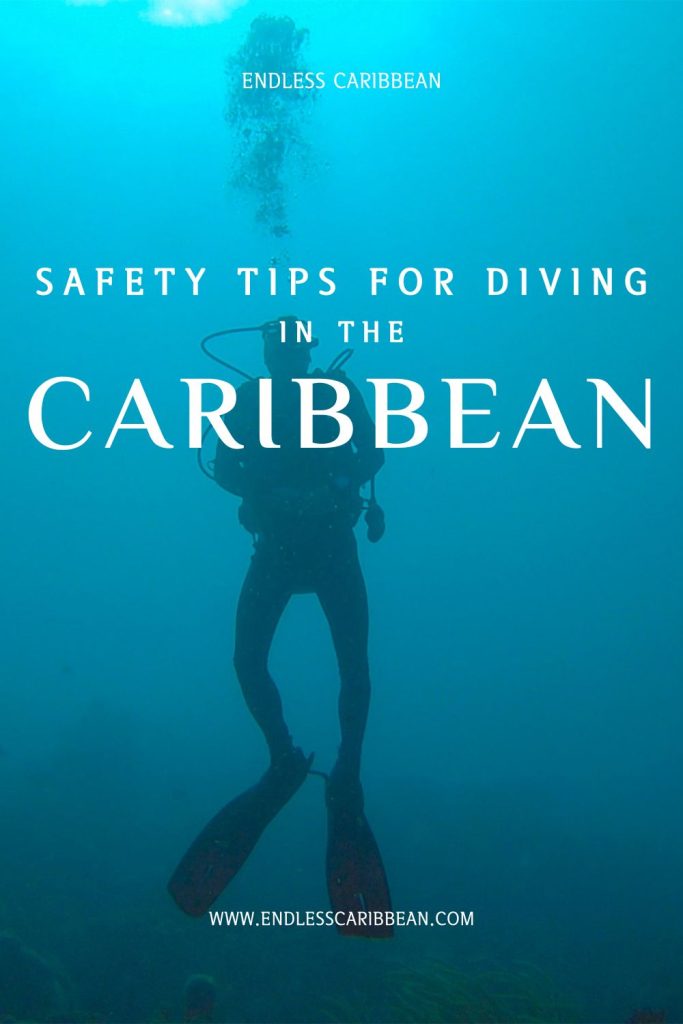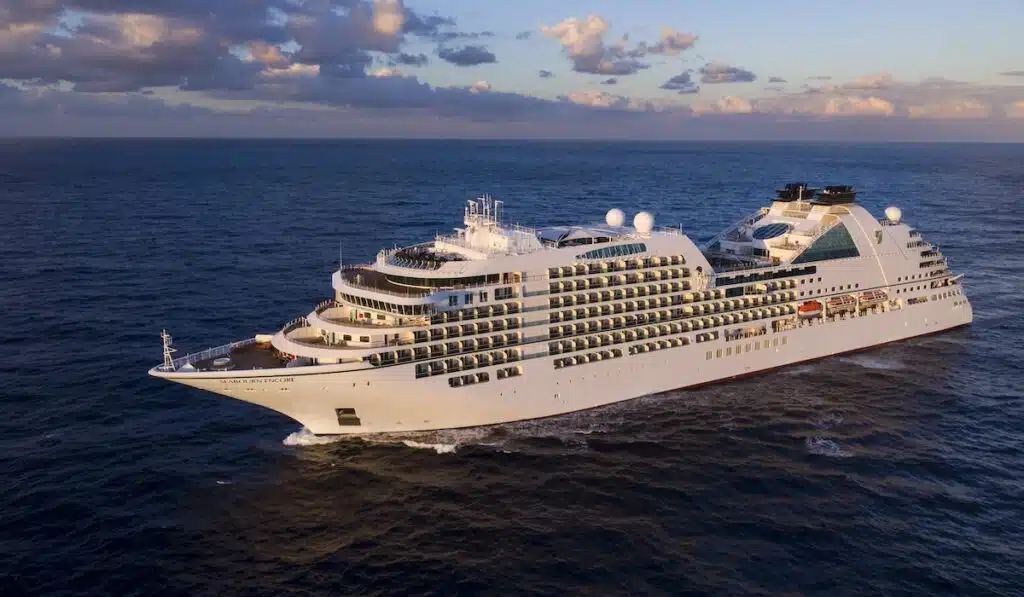Diving in the Caribbean is a thrilling experience, but there is always some type of risk when diving. As a result, it is important to take safety seriously and thus follow ore safety tips to keep in mind when diving in the Caribbean or anywhere else in the world.
Here are ten important safety tips for diving in the Caribbean:
- Check your dive fitness
- Always dive with a buddy
- Stay close to your buddy and guide
- Be visible in the water
- Avoid diving if you are ill
- Check your gear
- Dive within your limits
- Follow diving regulations
- Do not touch marine life
- Dive with a reputable operator

Check Your Dive Fitness
Because diving is an extreme sport that puts your body under pressure, you should ensure that you are fit to dive. One way to assess your dive fitness is to visit a doctor and get a full medical examination. Depending on where you go diving in the Caribbean, you will be required to sign a medical statement or waiver.
Always Dive with a Buddy
Diving with a buddy is a fundamental safety rule that should never be ignored. Having a dive buddy means that you can watch each other’s back and help each other in case of an emergency. It’s always better to dive with someone else than to dive alone.
Stay Close to Your Buddy and Guide
When you spot something that is very interesting, you may be tempted to swim off on your own. This is a risk that you should not take. Instead, show your buddy and guide and swim towards it together. If you get lost at any point, stay where you are and look around for one minute until you see them. If you still cannot see them, rise to the surface of the water.
Be Visible in the Water
When diving or snorkeling in the Caribbean, it’s essential to be visible to boats, other watercraft, divers, snorkellers and swimmers. To increase your visibility you can wear a brightly colored snorkel vest to increase your visibility. In busy boat traffic areas, especially when further from shore, use a dive flag or marker buoy to alert boats and other watercraft of your presence.
Avoid Diving if you are Ill
If you feel ill before your dive, cancel the trip. Additionally, if you are recovering from a cold or respiratory infection, you should not go diving. This is because you may put your lungs under additional pressure, which could result in a lung expansion injury or different types of barotraumas which may result in ear and facial pain, hearing loss, nausea, vomiting and nose bleeds.
Check Your Gear
Before diving, always check your gear to ensure that it’s in good condition and functioning correctly. Make sure that your regulator, BCD, and other equipment are working correctly. It’s also important to check your tank’s pressure and make sure that it’s filled to the correct level.
Dive Within Your Limits
Before you book a dive trip to the Caribbean, you must be clear about the limits that you are qualified to dive. Some types of diving require specialised certifications, and you should not attempt these unless you are qualified. If you are new to diving, you should only dive with professionals, and you must alert them about your skill level.
Follow Diving Regulations
Most Caribbean islands have strict diving regulations that are in place to protect divers and the environment. For example, in St. Martin one regulation is that all scuba diving gear entering the island must be soaked in a 5% chlorine bleach solution, rinsed in plenty of fresh water, and dried in the sun. Throughout the region, dive schools and operators must also follow specific guidelines and regulations. Make sure that you understand these regulations before diving in the Caribbean.
Do Not Touch Marine Life
This is one of the most important safety diving tips in the Caribbean. On your dive trip in the Caribbean, you will see several species that may not be spotted anywhere else. However, do not touch them. When you touch sea life, you can damage it (e.g. coral and sponges) or you run the risk of being bitten, stung or punctured (e.g. sharks, jellyfish and sea urchins).
Dive with a Reputable Operator
When choosing a dive operator, make sure that they are reputable and have a good safety record. Look for operators that are certified by recognized organizations such as PADI or SSI. It is also a good idea to read reviews and ask for recommendations from other divers.
By following these safety tips, you can enjoy a safe and enjoyable diving experience in the Caribbean. Remember to always put safety first, never take unnecessary risks, act responsibly, and respect the environment. The Caribbean’s dive operators are committed to sustainable diving practices and international safety standards, so you can be sure that your diving experience will have a minimal impact on the local ecosystem.
For more safety tips for diving in the Caribbean and other regions, please visit the following links:
Scuba Diver Life: Ten Rules for Safe Scuba Diving
Dive In: 11 Tips for Safe Diving
World Nomads: How to Scuba Dive Safely: 20 Essential Safety Tips
Dive Training: Waiting to Exhale: Diving’s Golden Rule Explained
DDRC Healthcare: Can I Dive with a Cold/ Flu?
Trip Savvy: 10 Essential Safety Tips All Scuba Divers Should Know
Koox Diving: The 10 Golden Rules of Safe Scuba Diving
Coast Water Sports: Top Scuba Diving Safety Tips
Scuba Diving: Top 10 Scuba Diving Rules and Safety Measures
Royal National Lifeboat Institution: Scuba Diving
Source: Mitchel Wijt via Unsplash






